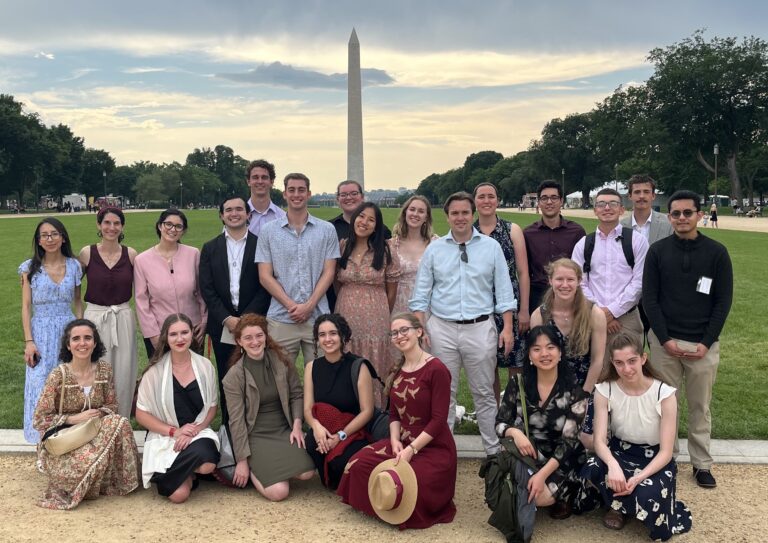From May 20 to the 24, the John Paul II Institute hosted its second Summer Fellowship on “Gender, Technology, and Culture.” Twenty-two students enjoyed this unique experience in which both academic and cultural activities helped them deepen their understanding of these questions that go to the heart of our current cultural and ecclesial experience.
After Mass in the morning, Institute faculty members taught seminars on topics such as gender, the sexual difference, the meaning of fruitfulness, and John Paul II on marriage. Through the Institute’s interdisciplinary approach to education, students were able to think about the themes of the Fellowship from perspectives including theology, law, psychology, philosophy, and bioethics.

Afternoons and evenings were devoted to cultural activities in the Washington, DC area, to allow encounters with beauty and art to contribute to the students’ reflections on our themes. In addition to the opera “Turandot” at the John F. Kennedy Center for the Performing Arts, the Summer Fellows enjoyed a guided visit to the National Gallery of Art to reflect on the nature of the artistic endeavor and what it reveals about the culture in which it arises.
“The experience was an amazing introduction to the importance of the Catholic faith within our modern world. It was truly eye-opening and thought provoking, and the week was filled with incredible lectures and discussions lead by the amazing professors at the institute. I couldn’t believe how enriching the entire experience was. I would recommend it to everyone.” (Charles McIntyre)

“The fellowship program was perhaps the most fruitful experience I have ever had. The professors were not only some of the brightest minds that I have encountered, they were also exceedingly generous with the sharing of their time and wisdom. Additionally, the content of the lectures was both pertinent to today’s societal concerns, as well as willing to ask the tough questions so as to unpack the nature of these different issues which we face. To enrich the experience even further, these academic discussions were complemented by more human and expressive events such as going to the National Art Museum and the Opera. Finally, I would be remiss if I didn’t mention how genuine and unique each of the students in the fellowship were, and how I would never have been able to meet so many interesting people my own age from different backgrounds without this opportunity. To anyone interested, I couldn’t imagine finding a better place to spend five days growing intellectually, culturally, and socially, and walk away with a better understanding of yourself and the world in which we live.” (Max Watson)